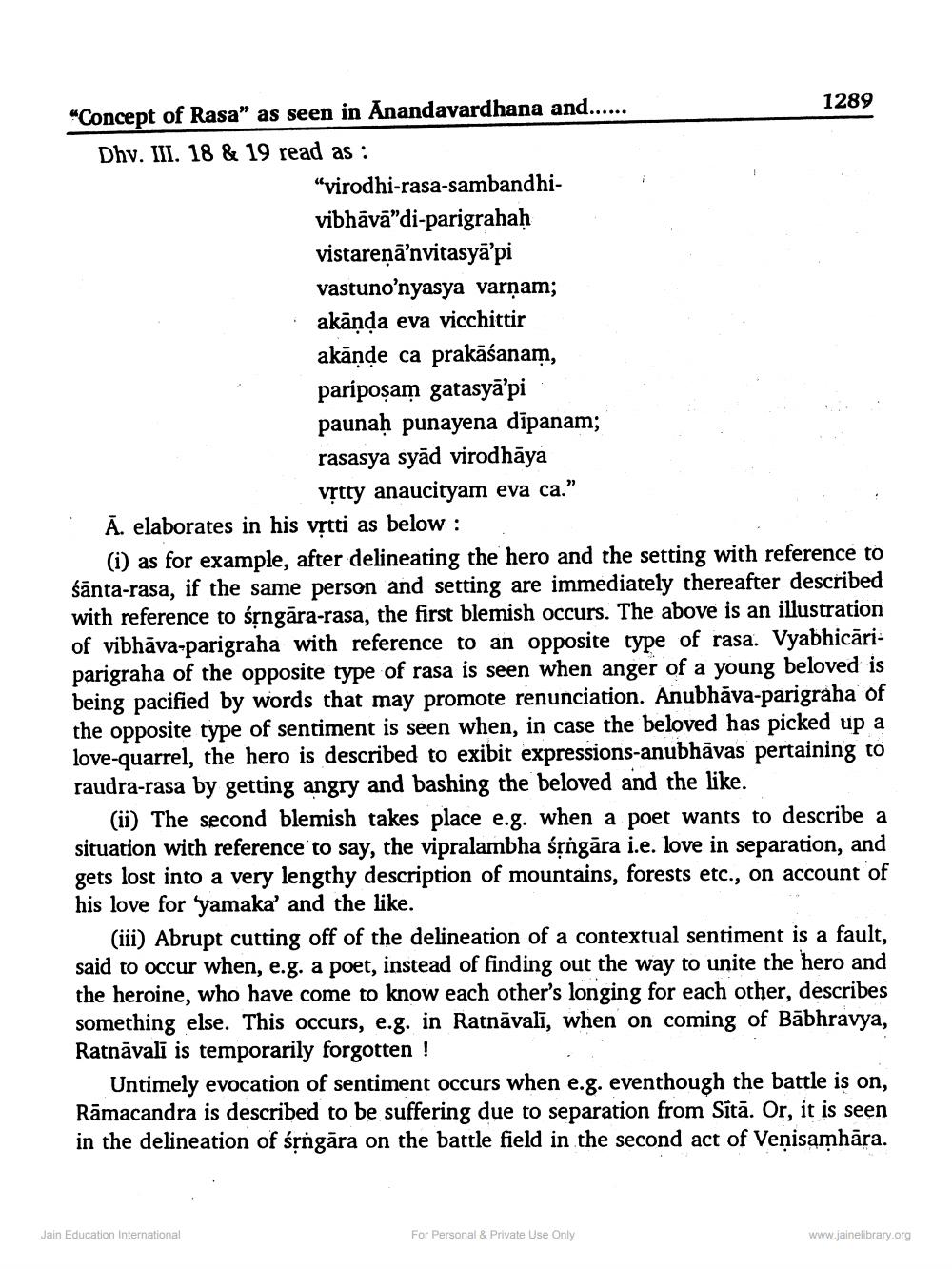________________
"Concept of Rasa" as seen in Anandavardhana and...... Dhv. III. 18 & 19 read as:
"virodhi-rasa-sambandhivibhāvā"di-parigrahaḥ vistareṇā'nvitasya'pi vastuno'nyasya varṇam; akāṇḍa eva vicchittir
akāṇḍe ca prakāśanam, pariposam gatasyā'pi paunaḥ punayena dipanam; rasasya syad virodhāya
vṛtty anaucityam eva ca."
Ā. elaborates in his vṛtti as below:
(i) as for example, after delineating the hero and the setting with reference to śānta-rasa, if the same person and setting are immediately thereafter described with reference to śṛngāra-rasa, the first blemish occurs. The above is an illustration of vibhāva-parigraha with reference to an opposite type of rasa. Vyabhicariparigraha of the opposite type of rasa is seen when anger of a young beloved is being pacified by words that may promote renunciation. Anubhava-parigraha of the opposite type of sentiment is seen when, in case the beloved has picked up a love-quarrel, the hero is described to exibit expressions-anubhāvas pertaining to raudra-rasa by getting angry and bashing the beloved and the like.
1289
(ii) The second blemish takes place e.g. when a poet wants to describe a situation with reference to say, the vipralambha śṛngāra i.e. love in separation, and gets lost into a very lengthy description of mountains, forests etc., on account of his love for 'yamaka' and the like.
(iii) Abrupt cutting off of the delineation of a contextual sentiment is a fault, said to occur when, e.g. a poet, instead of finding out the way to unite the hero and the heroine, who have come to know each other's longing for each other, describes something else. This occurs, e.g. in Ratnāvalī, when on coming of Babhravya, Ratnavali is temporarily forgotten!
Jain Education International
Untimely evocation of sentiment occurs when e.g. eventhough the battle is on, Rāmacandra is described to be suffering due to separation from Sītā. Or, it is seen in the delineation of śṛngara on the battle field in the second act of Venisamhāra.
For Personal & Private Use Only
www.jainelibrary.org




